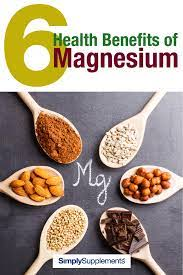
- A diet with a higher ratio of plant to animal protein may have cardiovascular benefits.
- A 30-year study found people who ate a higher ratio of plant protein had a lower risk of both cardiovascular disease and coronary heart disease.
- Experts say plant proteins have high amounts of fiber and healthy fats and low levels of saturated fats, which can have cardiometabolic benefits.
Diets with a higher ratio of plant to animal protein may be beneficial for cardiovascular health.
New research published in The American Journal of Clinical Nutrition found that those who ate the highest ratio of plant-based protein to animal-based protein had a 19% lower risk of cardiovascular disease (CVD) and a 27% lower risk of coronary heart disease (CHD) when compared with those who ate the lowest ratio of plant to animal protein.
“The average American eats a 1:3 plant-to-animal protein ratio. Our findings suggest a ratio of at least 1:2 is much more effective in preventing CVD. For CHD prevention, a ratio of 1:1.3 or higher should come from plants,” Andrea Glenn, lead author of the study and a visiting scientist in the Department of Nutrition at the Harvard T.H. Chan School of Public Health, said in a press statement.
Why eating more plant-based protein may better reduce health risks
In undertaking their study, the researchers examined 30 years of data on heart health, diet, and lifestyle of nearly 203,000 males and females. The participants were enrolled in the Nurses’ Health Studies I and II as well as the Health Professionals’ Follow-up study.
Participants were asked to report on their diet every four years as part of these studies.
From this data, the researchers calculated the participants’ daily protein intake in grams, including both plant and animal protein.
The researchers adjusted for the health history of the participants, as well as lifestyle and socioeconomic factors. They found that the participants who ate a higher ratio of plant to animal protein had the lowest risk for cardiovascular disease and coronary heart disease.
They found those reductions were even greater in those who ate more protein overall.
Whilst the risk reduction of cardiovascular disease began to plateau at a 1:2 ratio of plant to animal protein, the reduction in coronary heart disease risk continued to reduce with higher ratios of plant to animal protein.
The researchers say the reduction in risk for those diseases is likely due to replacing red or processed meat with plant protein sources like nuts and legumes.
These plant proteins are often associated with higher amounts of healthy fats, fiber, antioxidants, vitamins, and minerals. They have also been found to improve cardiometabolic risk factors like inflammatory biomarkers, blood pressure, and blood lipids.
How you can shift your diet to eat more plant-based protein
“Most of us need to begin shifting our diets toward plant-based proteins,” Frank Hu, MD, senior author of the study, and Fredrick J. Stare Professor of Nutrition and Epidemiology at Harvard Chan School, said in a press statement. “We can do so by cutting down on meat, especially red and processed meats, and eating more legumes and nuts. Such a dietary pattern is beneficial not just for human health but also the health of our planet.”
Christopher Gardner, PhD, who was not involved in the study, is an expert in nutrition science at Stanford. He says the findings are innovative but not surprising.
“It’s the same as we’ve been finding for years and years and years, but I’ve never heard it done as a ratio. That part’s kind of clever… This doesn’t have to be as polarizing as plant-exclusive or plant-restrictive. It doesn’t mean giving up meat. It just means having less, especially when you compare how much we eat in the US compared to the rest of the world,” he told Healthline.
He argues that disease reductions are less about protein and more about the differences in fiber and saturated fat content of plant and animal proteins.
“The simplest interpretation for me is that it is an indirect measure of fiber and saturated fat. For cardiovascular disease, it is well known that fiber decreases risk and saturated fat increases risk. Animal foods have zero fiber, and are the main sources of saturated fat…and have a high amount of protein. The individuals eating the most plant protein were getting the most fiber and the least saturated fat,” he said.
The researchers note that the ratios in their study are estimates and that further research is needed to determine the ideal balance between plant and animal protein.
The benefits of plant-based diets
This new research is yet another study supporting the recommendations of the World Health Organization and the American Heart Association, which suggest moving towards more plant-based foods.
“This study further elaborates and elucidates some of the benefits of consuming more plant-based proteins on heart disease risk and heart health,” Dana Hunnes, PhD, a senior dietitian at UCLA who was not involved in the study, told Healthline.
She argues that even taking small steps to reduce meat intake will make a difference.
“Start adding more plant-based proteins (whole foods, not highly processed ones) to your diet and cutting back on animal proteins. Doing it little by little will make it seem easier,” she said.
The American Heart Association recommends a heart-healthy diet that emphasizes fruits, vegetables, and whole grains with protein, mainly from plants.
Gardner argues many cultures around the world offer good examples of how plant-based foods and proteins can be incorporated into a healthy and delicious diet.
“When you look around the world, and you see all the soy, tofu, tempeh, soy milk that Asian populations eat, if you look at all the hummus Middle Eastern populations eat, the chana masala dishes with chickpeas in India, the Gado Gado, the peanut sauces that they have on vegetables in Indonesia, all the rice and beans, salsa dishes of Latin America. It’s not rabbit food. There are some delicious foods that are main components, staples of different cuisines around the world,” he said.
The Takeaway
Research suggests that a diet with a higher ratio of plant to animal protein may have cardiovascular benefits.
A 30-year study found that those who ate a higher ratio of plant-based protein compared to animal-based protein had a 19% lower risk of cardiovascular disease and a 27% lower risk of coronary heart disease.
Experts say this is likely due to the fiber content and low amounts of saturated fats found in plant-based sources of protein.

